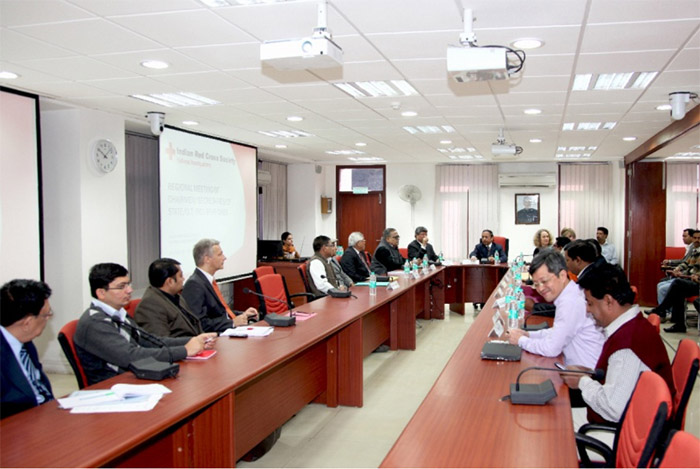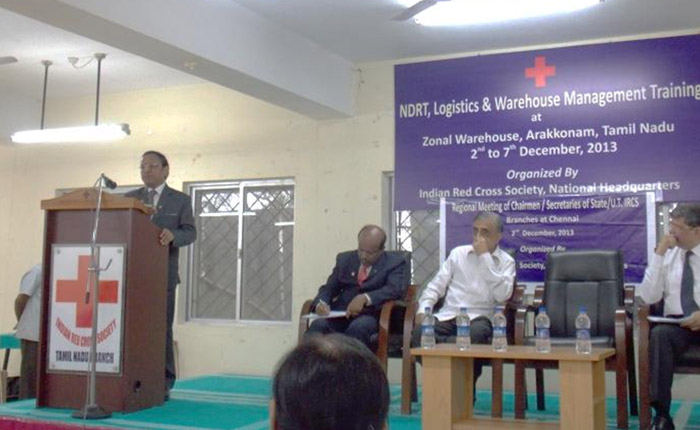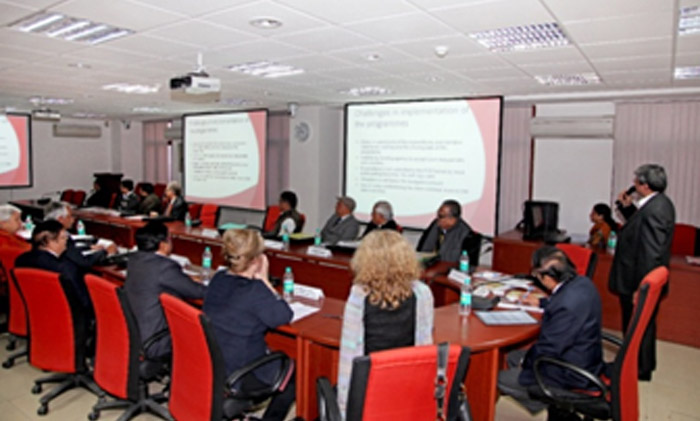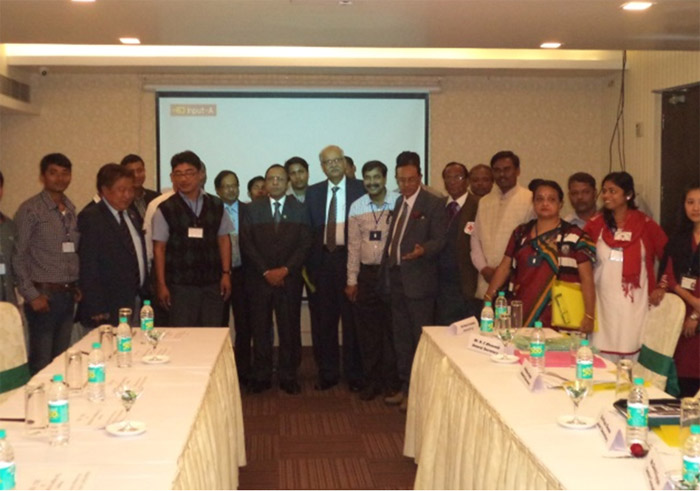
The Indian Red Cross Society has 35 state and UT Branches in the country. The Meetings of the State & UT Chairperson/Branch Secretary’s were held in the New Delhii, Chennai and Kolkata on 22nd November, 2nd December and 9the December 2013 respectively. These meetings were concurrently organised along with the National Disaster Response Team Trainings held at Bahadurgarh, Arrakonam and Salt Lake IRCS warehouses. The last such meeting was held in 2012. Since then, the Indian Red Cross Society (NHQ) had taken several initiatives in many of its 35 state/UT branches across the country aimed at making communities safer, healthier and resilient.
These meetings were a platform provided by the NHQ in which important common issues such as status of implementation of uniform rules, fund raising activities, taxation matters, blood services, membership drives, first aid trainings, status of utilization of development grants, strengthening of JRC and YRC etc. were discussed. The aim of the meetings was also to receive feed-back on the main activities of the branches, their challenges and the way forward in order to strengthen the coordination between the National Headquarters and the various branches.

Secretary’s Meet at Chennai on 2nd December, 2013
During the northern region meet on 22nd November, at the Multi-Conference facility in the National Headquarters, Delhi, the Secretary General of the IRCS, Dr S P Agarwal spoke about the vulnerability of India to disasters. He said that IRCS can emerge as a huge motivated force in combating after effects of these disasters only when all branches work as a team. He thanked and congratulated the participants of the NDRT induction training in being extremely motivated and concerned about the welfare of the society. He also thanked the secretary’s in nominating the names of volunteers for these trainings. He exalted the role of the participants in meeting up to the need of the communities in any further disasters.
Dr S P Agarwal emphasized that the relevance of IRCS as a humanitarian organization is growing. He said that motivated and trained youth could further motivate many more from the community and hence grow as strength of the organisation that is prepared at the opportune moment. Dr Agarwal said that, further impetus can be provided to the IRCS humanitarian activities by engrossing all modern technologies, including the usage of the video conferencing facility.

A presentation at the Secretary’s Meet at National Headquarters, Delhi on 22ndNovember, 2013
Dr Agarwal highlighted that IRCS as an organisation feels a responsibility to contribute to efforts towards reducing carbon emission by cutting down usage of paper. He highlighted that internet systems are environment friendly, enhance communication and bring accountability.
As partners, the IFRC and the ICRC, promised lasting help in terms of resources and areas of implementation of programmes wherever required. Dr Agarwal highlighted the various new systems of support which could be implemented for carrying out the activities at different State and District Branches.
Presentations were made by all the state & UT branches summing up the various activities they were involved in. It was found that many branches were involved in new activities and areas of fundraising. They also laid bare their problems in areas of implementation and coordination and sought help from the National Headquarters in solving them.

Secretary’s Meet at Kolkata on 9th December, 2013
The Branch Chairpersons/Secretaries were briefed about the IRCS strategy, the challenges faced by the society and the way forward. The meetings ended with the secretaries thanking Dr S P Agarwal for his continues support and guidance and assured better cooperation and transparency between the Headquarters and the State Branches in all areas of functionality and reportage
|